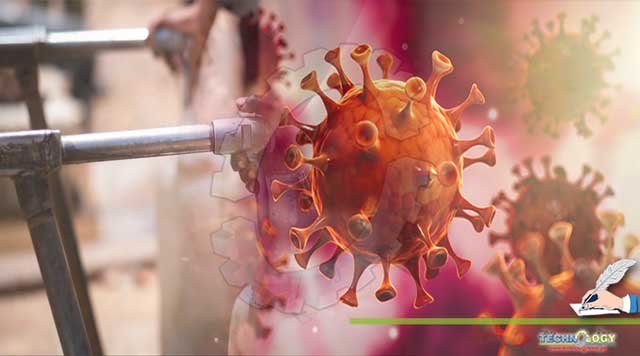The relationship between water, sanitation, climate change is somewhere linked. Regular handwashing is strongly suggested to battle coronavirus disease (COVID-19), which requires access to sufficient, safe, and inexpensive water in accumulation to that required for cooking, hydration, and general cleanliness or sanitation.

By Aleena Shahid
A crucial part of preventing and defending human health during infectious disease epidemics, such as the present COVID-19 pandemic is securely managed water, sanitation, and hygiene. Decent practices of water, sanitation, and hygiene besides waste management help as barriers to the human-to-human spread of the COVID-19 virus in homes, societies, health care systems, schools, and other public spaces.
Over 50% of the worldwide population lacks access to satisfactory sanitation, and 75% of households in low-income and middle-income countries are unable to wash with soap and water. Regardless of its importance, water infrastructure is significantly underfunded, slums, rural areas, and refugee camps are facing water decline due to climate changes such as evaporation, precipitation, surface runoff, and streamflow. Individuals living in such areas are more affected by COVId-19 because of no water and sanitation.
By the estimation of the World Health Organization (WHO), 829,000 deaths occurred from diarrheal disease and due to poor water and sanitation. Cholera is an acute diarrheal disease that occurs due to contaminated water and kills within hours if left untreated. It infected up to 4 million people each year and ultimately kills 21,000 to 143,000 people worldwide. Diseases like cholera and diarrhea can cause this much destruction than how much COVID-19 will destruct if not provided proper water and sanitation to people living in developing and under-developing areas around the world. Basic water supply, sanitation, and hygiene services around the globe are necessary for safe and quality care to stop the spread of COVID-19.
A vital need is required for enhanced water estimating and management of clean water and further planning of water projects in reply to rushing climate change. Such planning is very much necessary for communities in informal settings to protect them from the spreading of life-threatening COVID-19.
Agriculture, energy production, recreation, and manufacturing also need clean water for functioning. Excess use of water puts pressure on the availability of clean water. Water scarcity is one of the many reasons for climate change. Climate change has no direct link with COVID-19 but it has become one of the reasons for its spreading. We depend on a consistent, clean supply of drinking water to endure our health.
Sewage systems are flooded with the increasing occurrence, contaminating water sources, and the local environment. Severe droughts force people to adopt the alternative of even less safe areas of drinking water. It has increased the chances of other deadly diseases as well as COVID-19.
Those who are the least contributor to climatic problems and global warming are carrying the greatest burden of climate change. People living in developing and under-developing countries are living on the brink of the climate crisis, and the poorest communities among them are worst affected, being least able to prepare and protect themselves and their environments. People without clean water, sanitation, and other resources are struggling to cope with these difficulties in this stressful life of pandemic.
But well-managed water systems can protect access to dependable water provisions. Good sanitation systems can battle floods. And, as we are witnessing during the COVID-19 pandemic, hygiene actions such as handwashing are a crucial first line of guard against the spread of disease.
Facilities like clean water and sanitation must be immediately stretched and strengthened in the face of the severe and unpredictable impacts of a warming world and a pandemic situation. Yet very little investment and attention have been given to the effects of climate change on clean water and decent sanitation services. Just 1% of the billions pledged globally to fight climate change goes to protecting and providing clean water for vulnerable communities.
We have to protect our world from climatic changes, running out of clean water, or from the rising deadly COVID-19 virus. We can take different measures at the personal and local level to contribute to this Nobel cause of saving water, providing sanitation, protecting from worsening climatic changes, and lessening the impact of COVID-19.
- Raising water points above flood levels
- Using rainwater harvesting and storage
- Introducing technology such as filtering systems to clean contaminated water
- Providing poor people with hygiene and sanitation
- Educating people on saving water, sanitation, hygiene environment, saving our world from climate changes, etc.
This is our home, our country, and our world. Only we can save them to live in a better environment and provide life security to the next generations. No one from outer space is coming to help us. It is our environment and we have to clean and protect it and we have to do it.